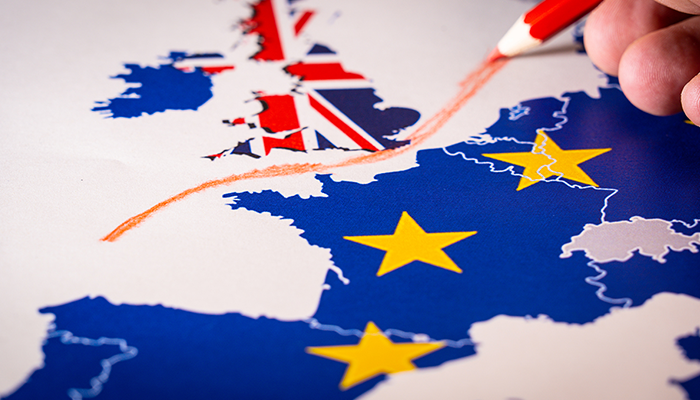BusinessEurope Headlines No. 2021-11
EU-UK trade: our survey on main problems faced by companies

In late February, BusinessEurope conducted a survey among its members to gather information on the main problems regarding EU-UK trade and investment that European companies have faced since the end of the transition period. The survey focused on the main immediate problems that companies have faced, the main issues they expect in the medium to long term, the impact of these problems, as well as actions necessary to mitigate them. The main challenges in the short run mostly have to do with the increased paperwork necessary for exporting goods and services from the EU to the UK and vice versa. These administrative requirements cause additional costs and delays, and many companies are not sufficiently familiar with the new processes. In the medium to long-term, technical requirements for placing products on the market such as labelling are expected to cause problems, particularly if there is regulatory divergence between the EU and the UK in this area. Companies also expect that the full impact of the more burdensome requirements for sending professionals to the other Party for business purposes will only be felt fully once the COVID-19-related travel restrictions are lifted. Dedicated trainings and capacity building measures for companies, as well as clear and timely guidance on any changes companies need to prepare for, will be essential for mitigating the impact of these problems over the next weeks and months. BusinessEurope shared the main results of the survey with relevant EU and UK authorities on 31 March.
![]() Contact: Benedikt Wiedenhofer
Contact: Benedikt Wiedenhofer
Industrial Emissions Directive revision: avoiding the leap into the unknown

"The current Industrial Emissions Directive framework is fit to enable the environmental transformation the European industry is undergoing. To ensure its success, it will be key to maintain the core principles that anchored the directive", reads BusinessEurope’s position on the revision of the Industrial Emissions Directive (IED). The position paper serves as contribution to the ongoing consultation preceding the new legislative proposal, expected for the end of the year. Further, it provides our initial views on how the IED aligns with other climate and environmental objectives such as greenhouse gas emission reduction, circular economy or energy efficiency. The IED is a key legislation for over 50,000 industrial plants in Europe, which allows them to operate through permits that contribute to achieving the highest level of protection of human health and the environment.
![]() Contact: Cecilia Serrano-Piedecasas
Contact: Cecilia Serrano-Piedecasas
European business path to a circular economy

"We have long supported the EU's circular economy agenda as a key initiative to ensure a functioning market for secondary raw materials and circular products in Europe, what should be the driving force of all circular actions. It will be an imperative step in Europe's journey to become climate neutral by around mid-century", said Alexandre Affre, Deputy Director General of BusinessEurope, on 25 March at the EU Circular Talks. The Finnish Innovation Fund Sitra together with the European Environment Agency and the European Circular Economy Stakeholder Platform hosted an online event on the role of circular business models and how ownership is changing in a circular economy. Affre stated that a circular economy is not only good for the environment, but it also makes business sense. European businesses are fully involved, as is shown by the 200 circular business examples on www.circulary.eu.
Contact: Alexandre Affre
New COVID-invoked barriers in the Single Market will further damage supply chains

On 29 March, BusinessEurope was invited by the EU Council Presidency to share experiences of businesses, related to the recent COVID-19 restrictions in the Single Market. At the EU Council Competitiveness and Growth working group meeting, Martynas Barysas, Director for Internal Market, shared a number of reported examples of how disruptions affect businesses. The illustrative cases, especially in the areas of engineering, construction, installation and maintenance services and manufacturing, have yet again confirmed interlinkages between goods and services. Disruptions in one area affect the other, sometimes in an immediate chain reaction. "There are a few lessons learnt from the latest restrictions by Member States and they are not new. Restrictions have chain reactions that go beyond a specific economic activity and beyond borders, they further damage supply chains of the EU, and there is a clear lack of both much better coordination among Member States and a single-window access to notifications of their measures in real time", Barysas said. As Member States were also interested in a broader view on necessary actions to uphold the Single Market functioning, he underlined the necessity for a package of the urgent, then short-term and mid-term actions. A harmonised solution on safe labour mobility in the Single Market, more coordination and access to information as well as agreed approach with Europe's international partners are urgently needed for the Single Market. The short-term measures at EU level should be the designing of contingency measures which would enable the EU to react to any crisis in a coordinated manner and in the way that helps businesses to navigate through turbulent emergencies. In addition, the European Commission should lead in removing the Single Market barriers that it identified in last year's March report in this regard, as the EU needs a strong basis for the recovery, the Single Market being one of its fundamentals. In the mid-term perspective, the EU needs to deliver a new Single Market deal post-Covid, in order to have a strong basis for growth necessary for the green and digital transition success. "It is a question for the European Council to address. As inspiration, we can still reflect on the package deal suggested by Mario Monti in his 2010 report on the Single Market. Even with the changed economic and social environment of today, he raised the issues and possible ways forward that are still valid today!", Barysas added.
Contact: Martynas Barysas
Calendar 
- 15 April: your next edition of Headlines
- 20 April: Green taxation event
- 23 April: High-level EU-Africa green investment forum
Not yet a subscriber? Register here.
Reminder: please have a look at our privacy policy